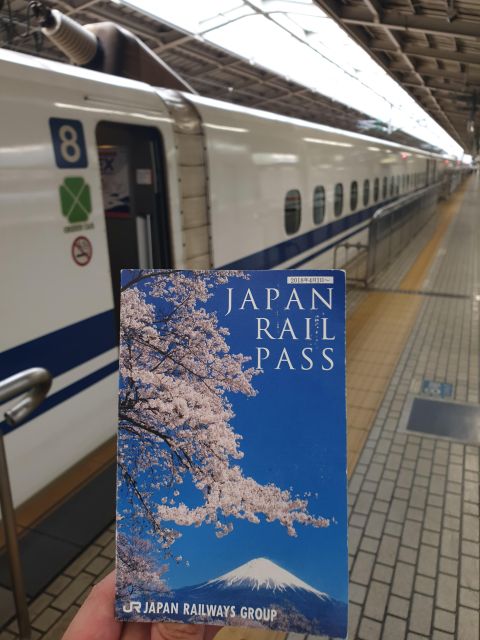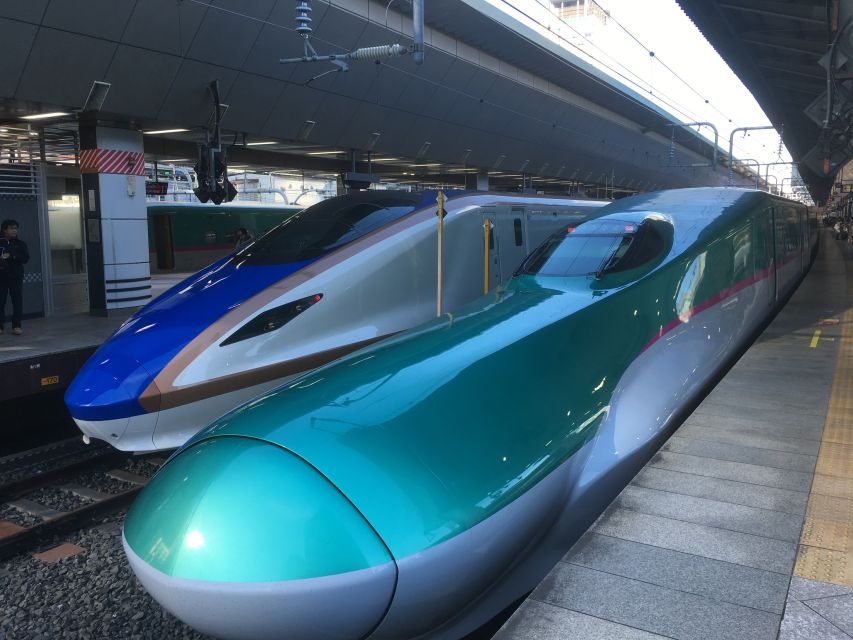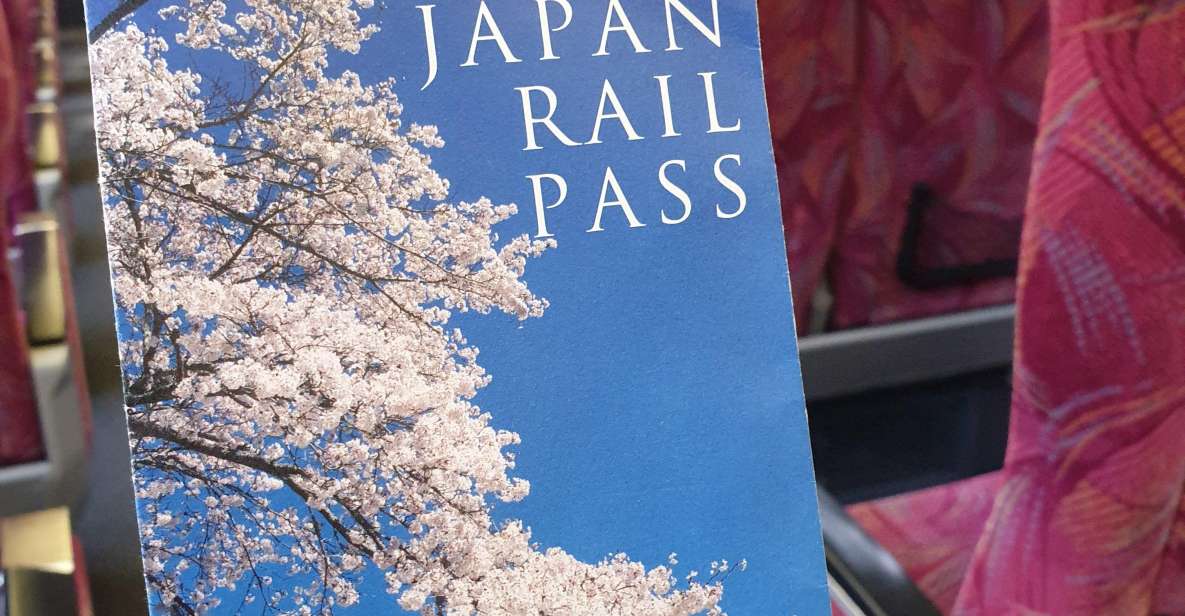Exploring Japan’s extensive rail network has never been more convenient for travelers. The Japan Rail Pass offers a range of options, from 7-day to 21-day passes, catering to travelers’ diverse needs and budgets. With this pass, visitors can unlock unlimited access to the country’s high-speed shinkansen, as well as a variety of other rail services, making it an efficient and cost-effective way to traverse the archipelago. The longer pass durations provide greater value and flexibility, particularly for those seeking a more comprehensive Japanese adventure. However, understanding the nuances of the pass’s inclusions and restrictions is key to maximizing one’s journey and ensuring a smooth…
Key Points

• The Japan Rail Pass is available in 7-day, 14-day, and 21-day options, catering to travelers’ needs based on the duration and scope of their journey.
• The 7-day pass is suitable for exploring a specific region or shorter trips, while the 14-day and 21-day passes offer more comprehensive coverage across Japan.
• The pass provides unlimited access to shinkansen bullet trains, limited express, express, rapid, and local trains, as well as Japan Rail Group bus services.
• The pass must be activated within 3 months of the issue date and is only available for travelers, not Japanese passport holders.
• Supplemental charges may apply for riding certain shinkansen trains, express or limited express services, and using local metro or subway systems.
More tours and experiences nearby.
Japan Rail Pass Overview

The Japan Rail Pass offers travelers an efficient and cost-effective way to explore the country’s expansive rail network, providing unlimited travel on a wide range of Japan Rail Group services.
Available in 7-day, 14-day, and 21-day options, the pass allows seamless access to shinkansen bullet trains, as well as limited express, express, rapid, and local train services. Passengers can also use the Tokyo Monorail between Haneda airport and Hamamatsucho station.
The pass includes free seat reservations and luggage allowance, and can be delivered to the traveler’s home address. While the pass is restricted to travelers, it’s an ideal choice for those seeking to cover multiple destinations across Japan via high-speed, punctual, and comfortable rail travel.
Comparing Pass Options

When considering the Japan Rail Pass, travelers have several options to choose from based on the duration of their stay in Japan.
The 7-day pass, priced at $328.12, is ideal for those exploring a specific region or making a short trip.
The 14-day pass, at $526.00, caters to travelers seeking more comprehensive coverage across Japan.
For those embarking on an extensive journey, the 21-day pass, costing $672.88, provides the greatest value and convenience.
Regardless of the duration, the Japan Rail Pass allows for unlimited travel on the country’s extensive high-speed rail network, making it a practical and efficient choice for sightseeing across multiple destinations.
Included Transportation Services

With the Japan Rail Pass, travelers can enjoy unlimited access to an extensive array of transportation services across Japan’s rail network. Specifically, the pass includes travel on Japan Rail Group’s shinkansen bullet trains, with the exception of the Nozomi and Mizuho services. Plus, it provides access to limited express, express, rapid, and local train services, as well as bus services operated by the Japan Rail Group.
| Service | Included |
|---|---|
| Shinkansen bullet trains | ✓ |
| Limited express trains | ✓ |
| Express trains | ✓ |
| Rapid trains | ✓ |
| Local trains | ✓ |
| Japan Rail buses | ✓ |
This comprehensive transportation coverage allows pass holders to efficiently and comfortably explore multiple destinations throughout Japan.
Pass Activation and Delivery
Travelers can have their Japan Rail Pass delivered directly to their home address via FedEx or UPS prior to their trip.
This convenient delivery option ensures that the pass is ready to use as soon as the traveler arrives in Japan.
The pass must be activated within 3 months of the issue date, so it’s essential to plan ahead and allow enough time for delivery.
Once activated, the pass provides unlimited travel on Japan Rail Group’s shinkansen bullet trains, as well as other express, local, and bus services throughout the country.
This hassle-free delivery service allows travelers to make the most of their Japan Rail Pass from the moment they step off the plane.
Eligibility and Restrictions
The Japan Rail Pass is only available for travelers, and not for Japanese passport holders. Certain routes may require supplemental charges, and the pass can’t be used on local metro or subway systems. Plus, the pass must be activated within 3 months of the issue date.
Some key restrictions to be aware of include:
- The pass isn’t valid for Japanese citizens or residents.
- Additional fees may apply for certain train routes and services.
- It can’t be used on local transportation systems like the Tokyo subway.
- The pass must be activated within 3 months of the issue date.
Despite these limitations, the Japan Rail Pass remains an excellent option for travelers seeking efficient and comfortable high-speed rail travel across the country.
Advantages of the Pass
Though the Japan Rail Pass imposes some restrictions, it offers several compelling advantages for travelers exploring the country.
The pass provides unlimited travel on Japan’s vast high-speed rail network, including shinkansen bullet trains that can whisk travelers between cities in a fraction of the time required by road or air.
With free seat reservations and luggage allowances, the pass simplifies the logistics of rail travel.
Plus, it grants access to a range of local and regional rail services beyond the Japan Rail Group, expanding the destinations accessible to pass holders.
For travelers seeking an efficient, comfortable, and cost-effective means of navigating Japan, the Japan Rail Pass presents an attractive option.
Planning Your Itinerary
When planning a trip with the Japan Rail Pass, one should carefully consider the destinations they wish to visit and the duration of their stay, as these factors will determine the most suitable pass option.
To make the most of the pass, travelers should map out their itinerary and prioritize cities and attractions accessible via the Japan Rail network.
Some key factors to consider include:
- The number of long-distance shinkansen (bullet train) rides planned
- The need to access remote or rural areas via local and express trains
- Potential side trips to cities not covered by the pass
- Flexibility to adjust the schedule during the trip
Understanding Supplemental Charges
While the Japan Rail Pass offers extensive coverage, travelers may encounter supplemental charges for certain routes or services not included in the pass.
For example, the pass doesn’t cover local metro or subway systems, so commuters will need to purchase separate tickets. Plus, there may be extra fees for riding on the fastest Nozomi and Mizuho shinkansen trains, which are excluded from the pass.
Travelers should also be aware of potential charges for express or limited express services on some routes. Although the pass provides great value, it’s essential to research any supplemental costs to budget accordingly and avoid unexpected expenses during the trip.
Understanding these exceptions will ensure a smooth and cost-effective rail journey across Japan.
Here's a few more nearby tours and experiences we think you'll like.
- Mt Fuji & Hakone: Sightseeing Private Day Tour With Guide
- Tokyo City Customized Tour With English Speaking Guide
- Kanto 10-Hour Chartered Day Trip | Tokyo City
- Akihabara Culinary and Culture Adventure: Your Personalized
- Tokyo DisneySea: 1-Day Ticket & Private Transfer
- 1 Day Tokyo Private Charter Sightseeing Tour With Guide
Frequently Asked Questions
Can the Pass Be Shared Between Multiple Travelers?
The Japan Rail Pass cannot be shared between multiple travelers. Each traveler must purchase their own individual pass, as it is non-transferable and tied to the specific person who activates the pass.
Are There Any Blackout Dates or Peak Travel Periods?
The Japan Rail Pass doesn’t have any blackout dates or peak travel periods. Travelers can use the pass anytime, though some routes may require supplemental charges during high-demand periods. Flexibility is a key benefit of the pass.
Can the Pass Be Extended or Renewed After Expiration?
The Japan Rail Pass cannot be extended or renewed after it expires. Once the pass’s validity period ends, travelers must purchase a new pass if they wish to continue using the rail network’s services.
Can I Use the Pass for Airport Transfers?
The Japan Rail Pass can be used for airport transfers, including the Tokyo Monorail service between Haneda airport and Hamamatsucho station. However, it doesn’t cover local metro or subway systems in major cities.
What Is the Refund Policy for Unused Passes?
The refund policy for unused Japan Rail Passes is generally flexible. Unused passes can typically be refunded, though there may be processing fees. The refund amount depends on the pass type and how much time has elapsed since purchase.
Not for you? Here's more of our most recent tour reviews happening neaby
- Tokyo Layover 5 Hours Private Tour
- Tokyo: 1-Day Private Customizable Tour by Car
- From Tokyo: Private Nikko World Heritage Sights Day Trip
- Private Day Trip to Mt. Fuji & Hakone Cherry Blossoms
- Tokyo Tower Secret Photo Spot and Skyline Tour
- Nikko, Tochigi: Full Day Private Nature Tour W English Guide
- Tokyo: Mount Fuji Customizable Private Tour by Car
- Private Charter Car One Day Trip in Near Tokyo!
- Yokohama Private Transfer: Tokyo, Narita & Haneda Airport
- From Tokyo: Mt. Fuji or Hakone Private Sightseeing Day Trip
- Tokyo: 1 Day JDM/Sports Car Tour to Hakone, Fuji, and Onsen
- Tokyo City Walk Tour Visit Tokyo in One Day
- Tokyo: Daikoku Car Meet and JDM Culture Guided Tour
- Tokyo: Become a Member of the Daikoku GT-R Car Club R35 Liberty Walk
- Tokyo: 1-day Private Customizable VIP Tour–Porsche Cayenne
Recap
The Japan Rail Pass offers travelers a convenient and cost-effective way to explore Japan’s extensive rail network.
With 7-day, 14-day, and 21-day options, travelers can choose the pass that best suits their itinerary and budget.
The pass simplifies logistics, provides access to high-speed and comfortable rail services, and grants free seat reservations and luggage allowance, making it an attractive option for those seeking to maximize their time and experience in Japan.






